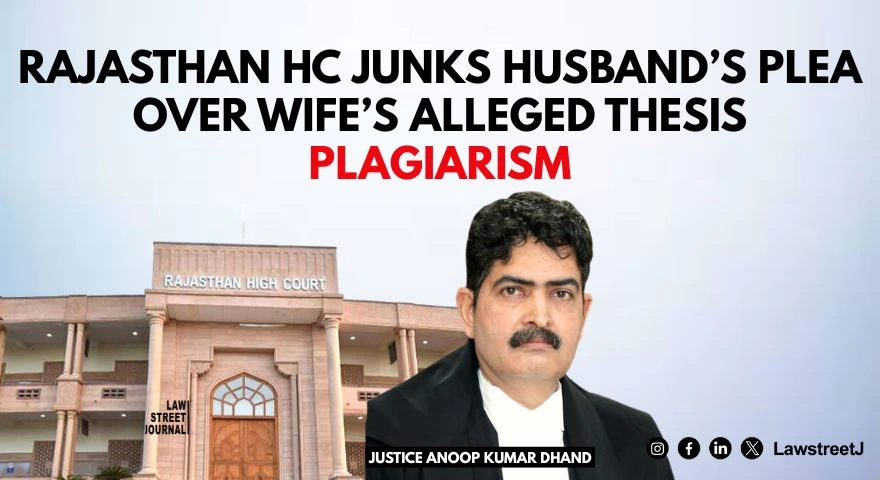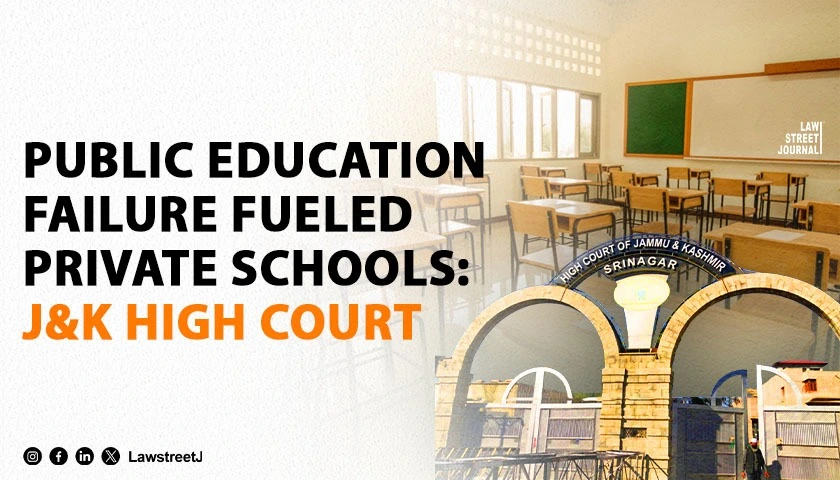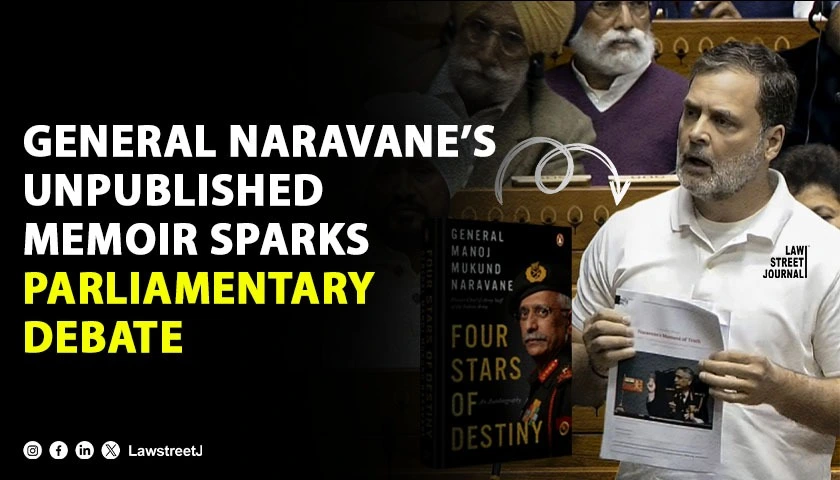Rajasthan: The Rajasthan High Court has dismissed a writ petition filed by a husband against his wife over alleged plagiarism, condemning the misuse of judicial processes to settle personal scores.
Justice Anoop Kumar Dhand made strong observations on frivolous litigation and the abuse of court processes while rejecting the petition.
Rajasthan High Court Slams Misuse of Legal System in Plagiarism Dispute
The court dealt with a writ petition filed by the petitioner against five respondents, including the University of Rajasthan, its Registrar, the Secretary of the University Grants Commission, the Principal Secretary of Higher and Technical Education, and the petitioner’s wife. The court noted, “The petitioner, who happens to be the husband of respondent No.5, made a complaint to the respondent-University regarding an alleged act of plagiarism committed by respondent No.5 at the time of submission of her research thesis.”
Addressing the procedural history, the court observed, “Upon receiving the complaint submitted by the petitioner, a notice was sent to the respondent, and thereafter, a Committee was constituted to examine the alleged plagiarism in the research thesis submitted by respondent No.5. The order in this regard was passed by the Vice-Chancellor on 24.08.2023.”
Frivolous Litigation Rejected: HC Upholds Academic Autonomy in Thesis Row
The court raised serious concerns about the petitioner’s motives, stating, “In the considered opinion of this Court, the platform of this Court cannot be used to settle personal scores between parties. The platform of this Court cannot be permitted to be misused by way of filing such writ petitions, which amounts to an abuse of the process of law.”
In a specific ruling, the court further held, “Now, with an oblique motive to settle his personal score, the petitioner has filed this writ petition. Such an act of the petitioner is a sheer abuse of the process of law because the law will take its own course.”
The court also emphasized the detrimental impact of frivolous litigation, citing the Supreme Court’s observation in Chanchalpati Das vs. The State of West Bengal & Anr., that “just as bad coins drive out good coins from circulation, bad cases drive out good cases from being heard on time.”
The High Court directed the university to proceed with the complaint as per its established procedures and dismissed the writ petition as “highly misconceived.”
Mr. Shobit Tiwari, Advocate, appeared for the petitioner.




![Collegium Recommends Chief Justices of Delhi, Rajasthan, and Gauhati High Courts for Elevation to Supreme Court [Read Order]](/secure/uploads/2023/11/lj_9736_933a94de-bdaf-43de-944b-b0e58e17edb5.jpg)
![Rajasthan HC directs police to consider protection for couple in live-in relationship outside marriage [Read Order]](/secure/uploads/2024/08/lj_9448_Live-In_relation_protection.webp)
!['Tears have to be understood for what they are worth,' SC sets aside HC's judgment in child sexual assault case [Read Judgment]](/secure/uploads/2025/03/lj_9096_Tears_have_to_be_understood_for.webp)






